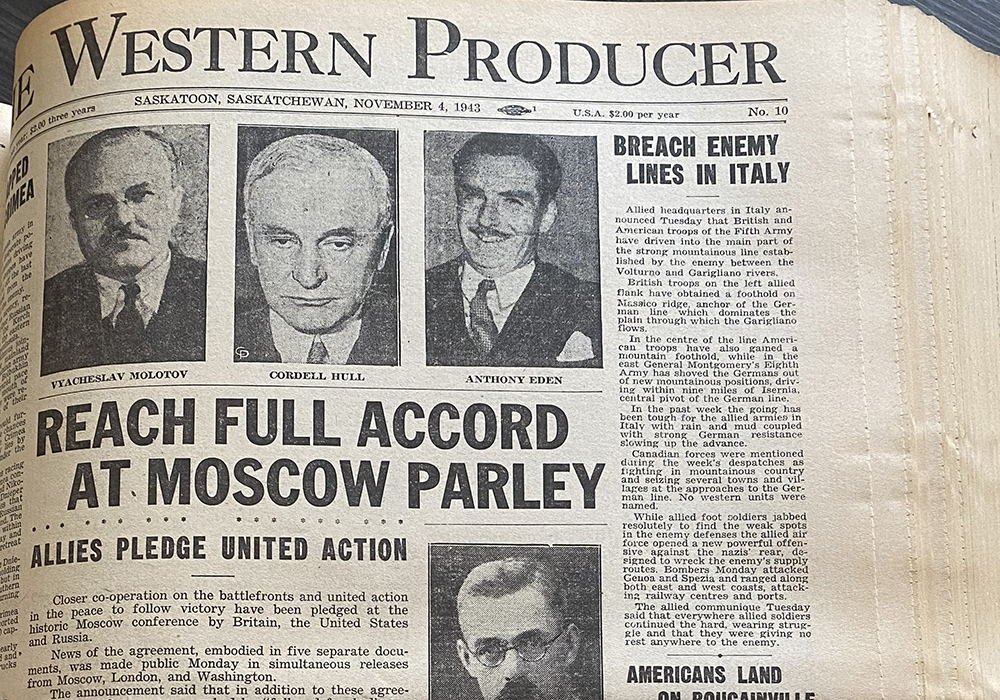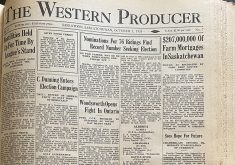For the next year, this column will mark The Western Producer’s 100th anniversary by taking a deep dive every week into a past issue of the paper.
War news dominated the front page of the Nov. 4, 1943, issue, with the exception of a story about a coal strike hitting Canada and the United States, a brief about widespread labour unrest due to layoffs in war industries and a slightly longer story about the opening of the 19th annual Saskatchewan Wheat Pool convention.
“It is expected that the vexed question of car allocations to country elevator points will be a main subject of discussion in the early stages of the meeting,” said the story.
Read Also

High prices see cow-calf producers rushing to incorporate
Farm accountants are reporting a steady stream of cow-calf producers rushing to get their operations incorporated ahead of selling their calves this fall.
Other than that, it was all war all the time.
Screamed the main headline: Reach full accord at Moscow parlay — Allies pledge united action.”
A politician did warn against over-optimism about the war, but the sense that the tide was turning was evident in a story from England.
With the headline, “Views on Post-War Homes,” the Standing Joint Committee of Working Women’s Organization laid out what it thought homes should feature once the war had ended:
- three bedrooms, two living rooms
- proper hot water system
- bathroom and a separate W.C.
- minimum living room size should be 12 x 15 feet
- adequate cupboard and storage accommodation and a place for prams and/or bicycles
There was farm news, of course.
Federal agriculture minister James Gardiner said the government would make payments worth $6 million under the Prairie Farm Assistance Act to Saskatchewan and Alberta producers who had suffered crop failure or near crop failure.
And in a story that sounds familiar today, Ross Hume of Souris, Man., president of the Cattle Breeders’ Association, said a labour shortage was still the main problem facing cattle producers. His solution was to dissolve the army’s home defence units so that the men could work on farms and ease the manpower shortage.
I wonder if that qualified as over-optimism about the war?















